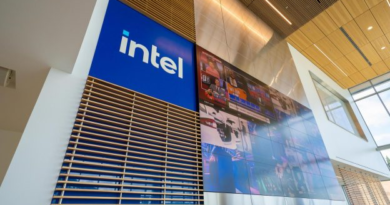Tech Today Congress: India needs to build an in-house semiconductor supply chain, says panel – Business Today
Feedback
Indian government has expressed strong enthusiasm for fostering the semiconductor ecosystem in India, including manufacturing, as evidenced by its announcement of a financial incentive of Rs 76,000 crore. However, there are sceptics who raise concerns about the necessity and significance of establishing the chip industry in India. These doubts were extensively deliberated upon during the panel discussion on ‘The World on a Chip’ at today’s Tech Today Congress organized by Business Today in Bengaluru.
David Reed, CEO of Vedanta Foxconn Semiconductor stated: “In 2020, India imported $53 billion in semiconductors. In 2023, it’s $100 billion, and in 2027 it will be $400 billion of money going outside. There are plenty of examples around the world where countries did not pay attention to manufacturing, I won’t name them. And you have some countries that did pay attention to manufacturing and looking at them.” He added if India misses this window, the repercussions are going to be huge.
The window Reed referred to is the expansion of chip manufacturing plants known as fabs or foundries, which are being built across various nations in the world. The semiconductor market is expected to be doubled from $600 billion to one to 1.3 trillion in the next 7 years.
Putting things in perspective from a different lens, Satya Gupta, President of VLSI society said, “Semiconductors is a very strategic technology for the country to have. It’s not about having this technology, it’s about not having the technology.” He explained a lot of people say India will become a super power in semiconductors but India needs a well-deserved seat on the table when semiconductor geopolitics is discussed across the world. India will be the largest consumer of semiconductors.
Building on to the point of how India will be one of the largest consumers of semiconductors, Neil Shah, Vice President Research at Counterpoint highlighted, as India is aiming at setting up manufacturing units of finished goods, it needs to have a very robust supply chain. “You cannot wait for chips to arrive to you. Because if you don’t even have one chip, you cannot manufacture that phone. If you look at China or Taiwan, the entire ecosystem of suppliers, chipsets are around the manufacturing facilities over there for any finished good product,” he said. He also added that everyone is over-reliant on these particular suppliers and they are very concentrated in one or two geographies. But post COVID-19 (and the chip shortage), now everyone wants to diversify.
According to Counterpoint’s data, India consumed $27 billion worth semiconductors locally in 2022, and that is going go to $64 billion by 2026 in terms of just value.
Another interesting reason why India needs to focus on having semiconductor fabs is to cater to the rising demand for the automobile OEMs. Hitesh Garg, India Country Manager, NXP Semiconductors said, “So there are a lot of product innovations that we are looking at that are required in the ecosystem. I look at automotive. We need electric two-wheelers, we need autonomous two-wheelers at some point in time. I see this as a huge opportunity. And companies go where the customers are. So, we are going to be the third largest automotive consumer in the world. Automotive is going to be the driver for next-generation chips and it will also fuel growth for semiconductor needs in India.”
Texas Instruments President Santhosh Kumar brought in the perspective of how companies think about setting up fabs. He said big companies always do things which reduce the risk and much lower risk options that they already have. Giving Texas Instruments example, Santosh Kumar further explained, “We have acquired people and so many such things (in other countries). So, it’s much easier for us to just expand the door to make it slightly bigger than actually put it out in a place where we don’t really have a presence. But that does not really mean we will not look at India ever. We look at the financial viability, we absolutely look at India as a very high opportunity for us.”
Furthermore, given India’s ambition of becoming a manufacturing nation, India will be a consumer of 11 per cent of the global semiconductor market, and having an in-house supply chain for chips will only benefit India.
Copyright©2024 Living Media India Limited. For reprint rights: Syndications Today
Add Business Today to Home Screen
Home
Market
BT TV
Reels
Menu
Menu


